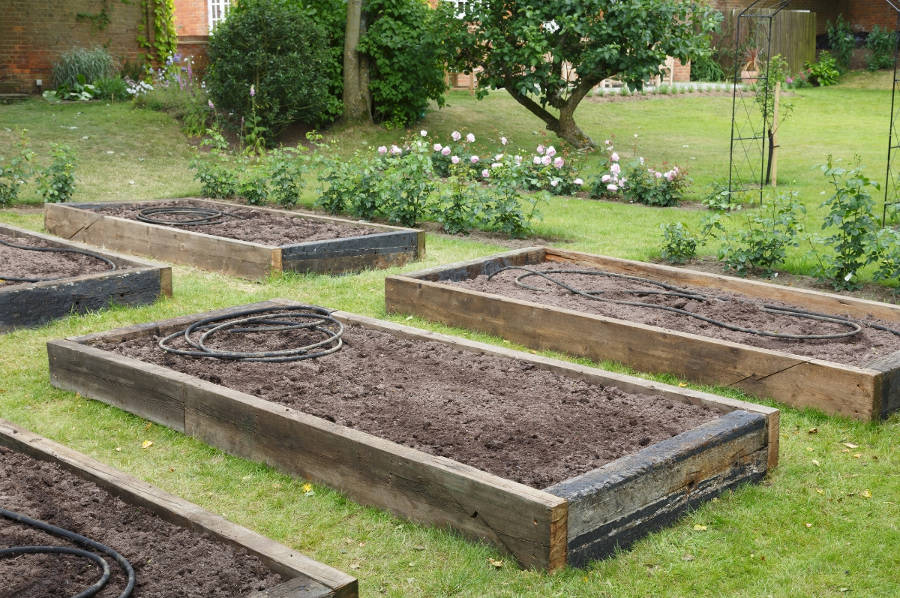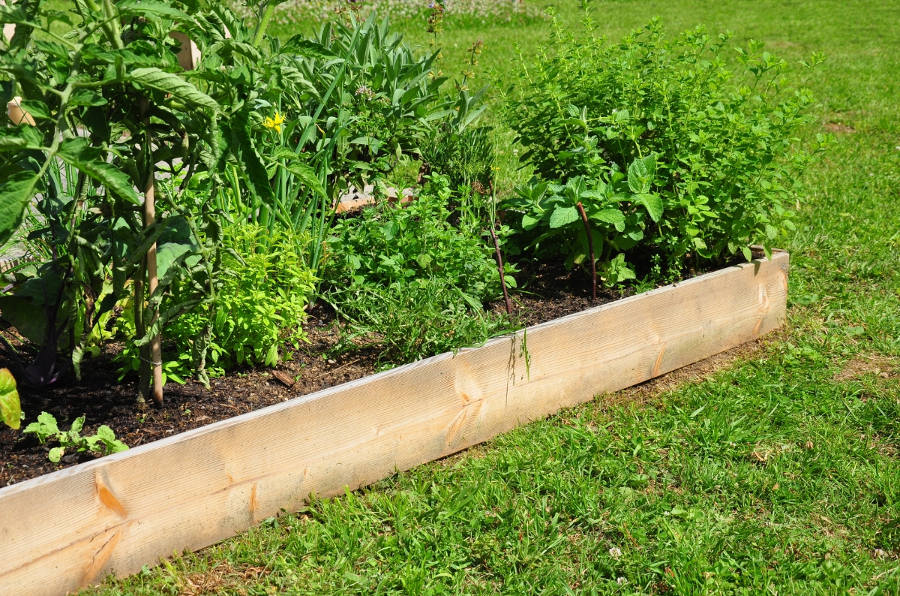Gardening in raised beds offers many advantages for growing vegetables, fruit, and herbs. It gives you greater control over soil conditions to help your plants thrive, and it also offers better physical convenience compared to constant bending or kneeling.
And while building raised beds doesn't guarantee success, if you follow these five straightforward tips you'll get off to a good start.
1) Build to a Sensible Size
When you build your raised beds, make sure they're not too wide. You should be able to easily reach every point on the soil with stretching or overbalancing.
For raised beds in open ground, this means making them no more than two arm lengths wide. For beds against a wall, you should be able to reach the back part without difficulty.
2) Leave Some Space
As well as planning your beds' width, you should also take care over how close each one is to its neighbors. Ideally, you should be able to push a wheelbarrow along the path between each one, to make things easier when you're weeding or spreading a mulch.
Also, unless you build weed protection into the paths, ensure you can comfortably push your lawnmower around the beds to keep growth under control.
3) Use the Right Wood
There's something satisfyingly thrifty about build raised beds from reclaimed timber. However, be very careful over your wood selection.
If it's been treated with creosote or another weatherproofing agent, the residual chemicals will leech out into your soil. This can harm the plants' growth, but importantly for vegetable growers, the chemicals could easily wind up in your food too.
4) Use the Best Soil
It can be expensive to fill your raised beds with soil for the first time, but it doesn't pay to skimp on your soil choice. It's a one-off expense, but your future success depends on the quality of your soil.
Buy the best quality soil you can afford, and make sure its pH level and initial nutrient content are suitable for the plants you want to grow.
As time goes on, you can further improve your soil with mulches and organic compost, but it's only good sense to start with the best growing medium you can.
5) Don't Forget to Mulch
And speaking of mulching, it's just as important in raised beds as in the open soil. Regular mulching will help suppress weeds, replenish nutrients, and stop the soil becoming so compacted it's easily waterlogged.
Looking after your soil is important, as it's a major task to empty raised beds and replace the earth if you let it fall out of condition.
Raised beds can make a huge difference to your vegetable-growing success, but the technique isn't a silver bullet. However, follow these five simple tips, and you'll be on the right path to a healthy harvest by next season.







